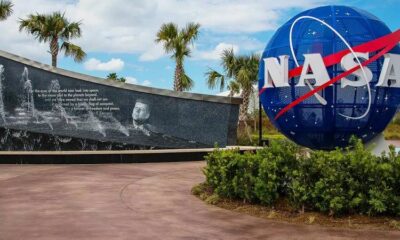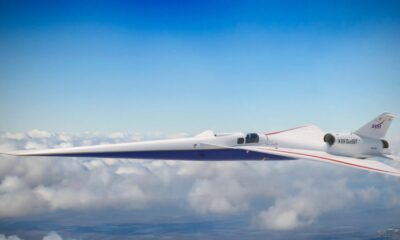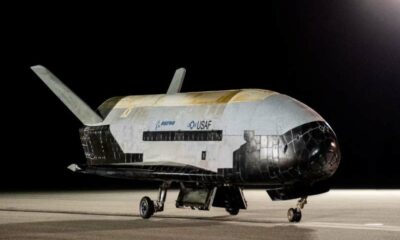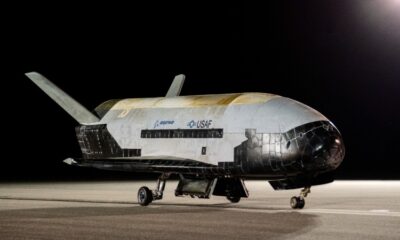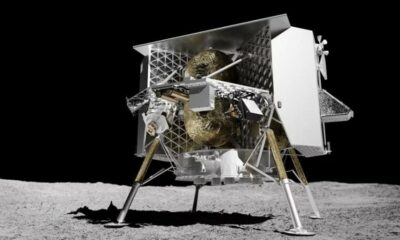Science
NASA and Jeff Bezos’ Blue Origin collaborate on a Mars mission
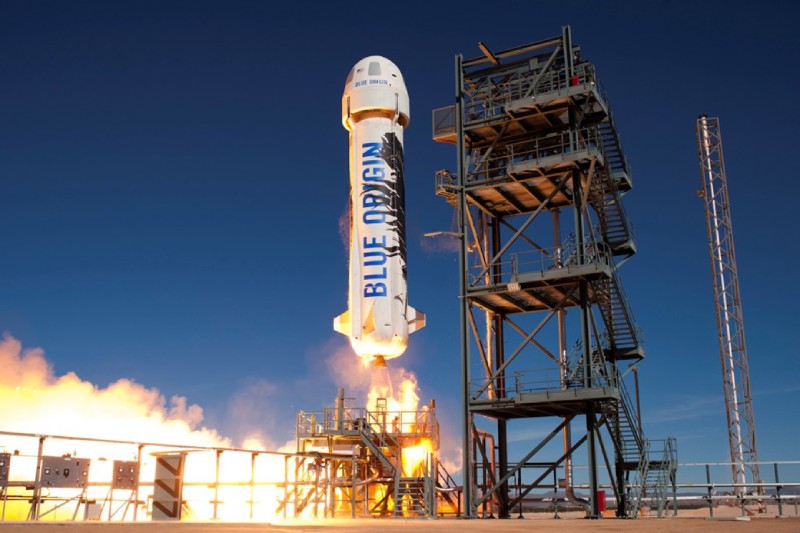
Blue Origin, a private space company, has recently been hired by NASA to assist it in reaching Mars. This confirms the agency’s interest in carrying out missions to other planets and beyond.
Blue Origin, owned by Amazon founder Jeff Bezos, will provide a New Glenn launch vehicle for the administration’s ESCAPADE mission, which stands for Escape and Plasma Acceleration and Dynamics Explorers. While NASA and Blue Origin have collaborated on a few projects in the past, they have never worked together on a Mars mission. At Cape Canaveral Space Force Station in Florida, Space Launch Complex-36 is where ESCAPADE is scheduled to launch on a New Glenn rocket in late 2024.
In a statement, Jarrett Jones, Blue Origin’s senior vice president of the New Glenn, said, “ESCAPADE follows a long tradition of NASA Mars science and exploration missions, and we’re thrilled NASA’s Launch Services Program has selected New Glenn to launch the instruments that will study Mars’ magnetosphere.”
ESCAPADE will reach Mars after an 11-month journey to investigate the planet’s magnetosphere. The two identical spacecraft that makeup ESCAPADE will gather information about how plasma and energy move through the planet’s magnetic field and how the planet’s magnetosphere interacts with the solar wind. There will be three instruments aboard both probes: a Langmuir probe to study the characteristics of plasma in the Martian magnetosphere, an electrostatic analyzer to study the behavior of ions and electrons, and a magnetometer to measure the magnetic field on Mars. RocketLab is working with the University of California Berkeley Space Science Laboratory to develop the ESCAPADE twin probes.
It is anticipated that the New Glenn carrying ESCAPADE will launch in January 2024. Seven reusable BE-4 engines and a reusable first stage that Blue Origin claims can withstand 25 missions make up the rocket. An oxygen-rich pre-burner and liquified natural gas serve as the fuel for these BE-4 engines. The initial launch of New Glenn was scheduled for 2020, but Blue Origin has repeatedly postponed it. After a scheduled launch in 2022 was postponed, New Glenn’s most recent delay moved the launch date to 2023.
As a result, NASA is betting on a rocket that hasn’t flown yet. The ESCAPADE mission would suffer greatly if the initial launch of New Glenn did not go as planned. Blue Origin is under a lot of pressure because the company has never launched a rocket into space. While Blue Origin has carried out a few successful and well-publicized suborbital flights, the company has never launched a spacecraft into space—a fact that Elon Musk, a rival of Bezos, relishes pointing out.
Previous collaborations between NASA and Blue Origin include a 2020 contract for the use of New Glenn by the space agency for future launch services. Blue Origin, SpaceX, Dynetics, Lockheed Martin, and Northrop Grumman received contracts in 2021 to develop concepts for the Artemis 3 mission’s lunar lander. SpaceX was ultimately selected by NASA for its Starship design. Additionally, as NASA and its international partners prepare to retire the International Space Station in 2030, Blue Origin and Sierra Space are currently working on commercial space station concepts.
Having said that, there have been some bumps in the road in the relationship between the two parties. Blue Origin filed a lawsuit against NASA, which it ultimately lost after SpaceX won the bid for the lunar contract.
-

 Sports4 weeks ago
Sports4 weeks agoAl Ahly vs Inter Miami, 2025 FIFA Club World Cup – Preview, Prediction, Predicted Lineups and How to Watch
-
Health3 weeks ago
Back to Roots: Ayurveda Offers Natural Cure for Common Hair Woes
-

 Tech3 weeks ago
Tech3 weeks agoFrom Soil to Silicon: The Rise of Agriculture AI and Drone Innovations in 2025
-

 Startup4 weeks ago
Startup4 weeks agoHow Instagram Is Driving Global Social Media Marketing Trends
-

 Sports3 weeks ago
Sports3 weeks agoFIBA 3×3 World Cup 2025: Full Schedule, Preview, and How to Watch
-

 Science4 days ago
Science4 days agoJuly Full Moon 2025: Everything You Should Need to Know, When and Where to See Buck Moon
-

 Gadget3 weeks ago
Gadget3 weeks agoThings to Know about Samsung Galaxy S26: What’s New and What’s Next
-

 Sports4 weeks ago
Sports4 weeks agoWorld Judo Championships 2025: Full Schedule, Date, Time, Key Athletes and How to Watch

